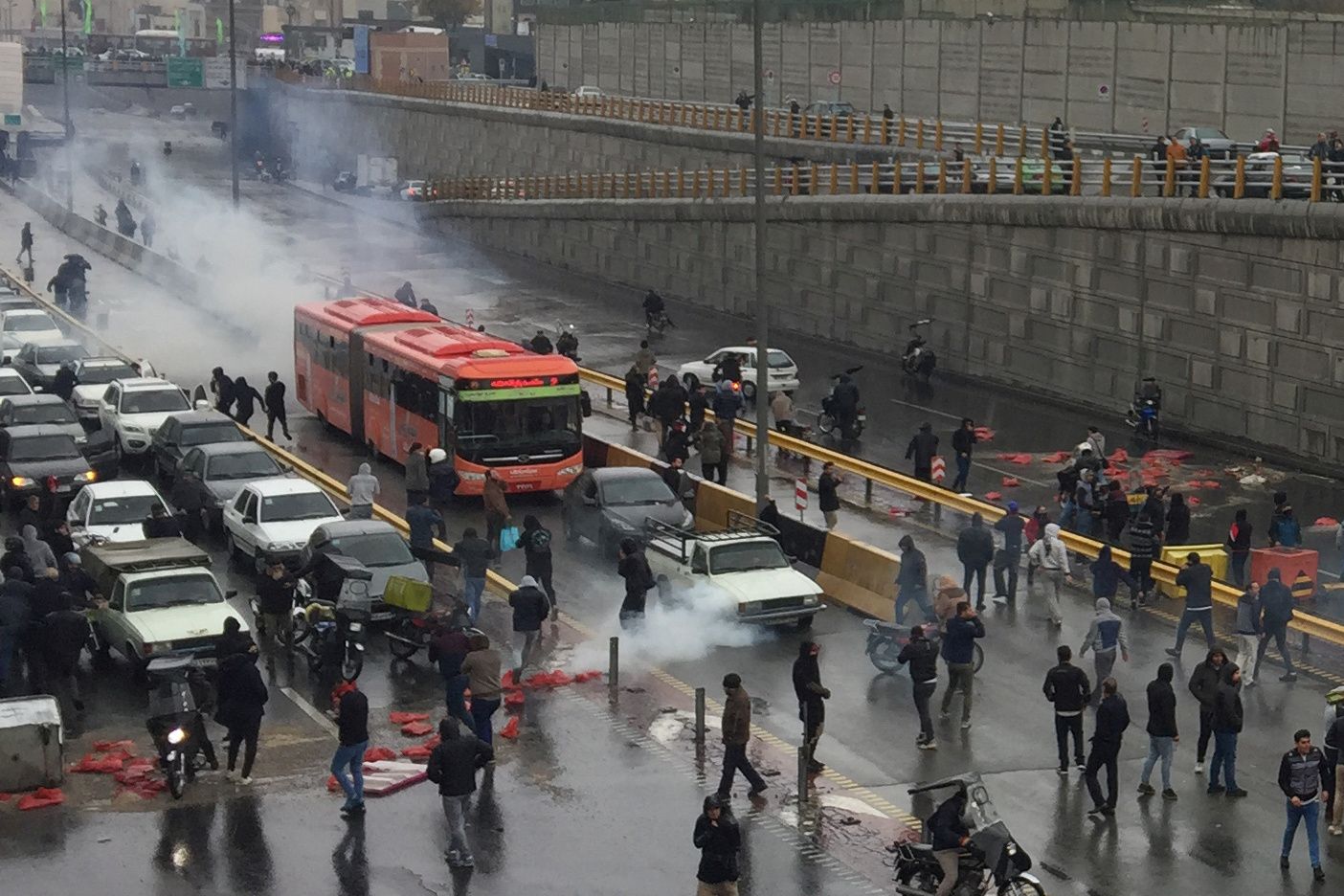November 18, 2019
Tehran's Next Move: "We don't want an Islamic Republic, we don't want it," was the chant heard among some protesters in Tehran over the weekend after the government announced a 50 percent fuel price hike meant to fund broader support for the country's poor. Under crippling US sanctions, the country's economy has plummeted, unleashing a "tsunami" of unemployment. What started Friday as nationwide economic protests took on a political coloring, as protestors in some cities tore up the flag and chanted "down with [Supreme Leader] Khamenei!". The unrest seems to be related, at least indirectly, to widespread demonstrations against Tehran-backed regimes in Iraq and Lebanon as well. Economically-motivated protests erupt in Iran every few years, but they tend to subside within weeks under harsh government crackdowns. So far, the authorities have shut down the internet to prevent protestors from using social media to organize rallies. But Iran's powerful Revolutionary Guards Corps has warned of more "decisive action" if the unrest continues.
China's army sweeping up Hong Kong? A central question hangs over the ongoing turmoil in Hong Kong: Will China's soldiers intervene? Elite troops of China's People's Liberation Army (PLA) are garrisoned in Hong Kong and the city's basic law says they can help maintain public order, but may not "interfere in local affairs." As the battle of wills between protesters and local police rages on, some observers saw ominous signs over the weekend: on Saturday, some of the PLA troops took to the streets with brooms and plastic buckets to help clean up the debris following demonstrations. PLA troops have left their garrisons in Hong Kong just twice in the past 22 years, and they would not have done so now without orders known at the highest levels of the Chinese government. Is this whistle-as-you-work cleaning brigade a warning from the mainland that the army's role can quickly expand?
Sri Lanka's new president: Former defense Secretary Gotabaya Rajapaksa was elected president of Sri Lanka on Sunday, soundly defeating a candidate from the current government. Rajapaksa's campaign focused on tax cuts to spur growth and tighter security, particularly after the Islamic State's horrific Easter bombings this spring. But Rajapaksa is a polarizing figure in a deeply divided society: as defense secretary he oversaw the military defeat of the Tamil separatist movement during a brutal civil war, and has faced allegations that he committed human rights violations during that time. He and his brother, former strongman president Mahinda Rajapaksa, also favor closer relations with China, a major and controversial new investor in the Sri Lankan economy. We're watching to see how the new government positions the country in an increasingly delicate dance between Beijing and its traditional allies in India.
What We're Ignoring
Meaningless elections in Belarus: To be honest, Sunday's parliamentary vote in Belarus didn't exactly have us on the edge of our seats. The last time general elections were held there, only two of the legislature's 110 seats went to figures opposed to President Alexander Lukashenko, who prides himself on being "Europe's last dictator." But this time around the result was even more ridiculous: precisely zero opposition figures were elected (the two from last time were barred from running). Lukashenko says his elections are fair, and we are of course ignoring that. More interesting is whether Lukashenko, who has run Belarus for a quarter of a century, provokes any kind of backlash when he stands for "reelection" next year, as he intends to do.
More For You
Of all the threats to the world, what are the top 10 most urgent global risks for 2026? On Monday, January 5, at 12 pm ET, join us for a livestream discussion with Ian Bremmer and global experts to discuss the Top Risks of 2025 report from Eurasia Group. This report will mark twenty years of Ian Bremmer’s annual forecast of the political risks that are most likely to play out over the year. Event link: gzeromedia.com/toprisks
Most Popular
- YouTube
Wikipedia cofounder Jimmy Wales explains why a specific page titled “The Gaza Genocide” risks undermining trust with users.
- YouTube
In his latest Quick Take, Ian Bremmer explains a major shift in the Ukraine war: Europe, not the United States, is now driving the strategy.
Chief Superintendent of the police force's National Security Department Steve Li Kwai-wah speaks at the West Kowloon Magistrates' Courts building after the verdict in the national security collusion trial of Jimmy Lai, founder of the now-defunct pro-democracy newspaper Apple Daily, in Hong Kong, China, on December 15, 2025.
REUTERS/Lam Yik
© 2025 GZERO Media. All Rights Reserved | A Eurasia Group media company.
